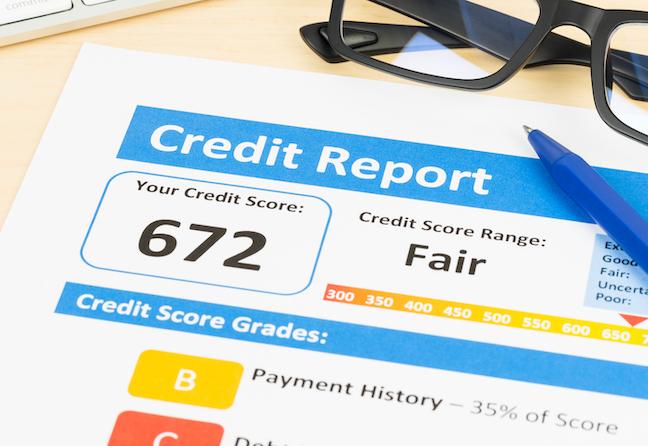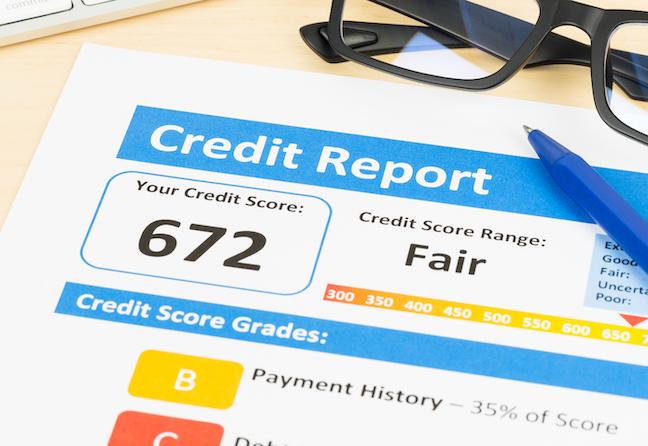How to check your credit score and credit report


Understanding your credit starts with knowing where you stand. Learn how to check your credit report and score, why it matters, and what steps to take if something doesn’t look right.
Key takeaways
Checking your own credit score doesn’t impact your score.
Banks, credit cards, nonprofit counselors, and online services can often help you access your score for free.
You’re entitled to a free credit report every year. Visit AnnualCreditReport.com to request reports from all three major bureaus.
Dispute errors on your credit report immediately with the bureau and the source to protect your score.
Checking your credit report and score is important for everyone, not just for those with good credit. In fact, if your credit is less-than-perfect, it’s even more important to keep an eye on it.
By regularly checking your credit report and your score, you can make sure all the information is correct and up-to-date. Knowing what’s in your credit report will help you stay on top of your finances, make more informed decisions, and take steps to improve your credit score.
Does it hurt your credit score to check your own credit? No. This is known as a soft inquiry or a soft pull and it has no impact on your credit score.
How to check your credit score
Your credit score is based on the information in your credit report, including your payment history, the amount of debt you owe, how long you’ve been using credit, new or recent credit, and the types of credit used. FICO® is the most widely used score, but there are other credit scoring companies. Scores may vary slightly from one company to the next.
You can check your credit score through your bank or credit union, online services, some credit card issuers, and certain nonprofit organizations, often for free. Here are five places to start.
1. Major credit bureaus. You can access your credit score by creating accounts with Experian, TransUnion, and Equifax. Check with each credit bureau to see if they offer a free or paid score based on your report.
2. Your bank or credit union. Many financial institutions will check their customers’ credit scores for free.
3. Free credit score website. Some online sites will provide a free credit score if you create an account. The companies may also offer a paid subscription with additional information, features, and benefits.
4. Credit card issuer or lender. Many credit card companies and lenders provide a free credit score to their customers. Ask any of your lenders if they offer this information for free, how often it’s available, and if you automatically get it every month or if you need to request it.
5. Nonprofit credit counselor. Many organizations offer credit counseling at no charge. In addition to helping you access your credit score, credit counselors can answer questions about your credit, budgeting, bankruptcy, managing debt, and more.
Checking your credit report
Use free credit check services to monitor how your financial decisions are impacting your credit score. By law, each of the three major credit bureaus (Equifax, Experian, and TransUnion) are required to give you a free credit report every 12 months if you ask for it.
You can request a free report by visiting AnnualCreditReport.com, calling 877-322-8228, or sending a request by mail.
Your credit report will show your personal financial information, including your bill payment history, every time you’ve borrowed money, current debt, bankruptcy history, and any lawsuit records. In most cases, your credit report won’t include your credit score.
When you get your report, carefully look it over. Is it accurate, including your Social Security number, address, accounts, and loans? Do you see any signs of identity theft? If you see a mistake on the report, you need to fix it right away. Start by reaching out to the credit bureau responsible for the report you’re disputing and the company that provided the incorrect information.
Will checking my credit hurt my credit score?
Remember, checking your own credit won’t affect your score. This is a type of soft inquiry or soft pull, which isn’t visible to potential lenders when they view your credit report.
However, when a lender or credit card company asks to review your credit history in connection with a credit application (a hard inquiry or hard pull), it can potentially lower your credit score. The request for credit information remains on your report for up to two years.
You likely won’t see much of a dip from a single hard inquiry, but several in a short time can cause more damage to your score. That’s because trying to open several new accounts in a short time could suggest you’re struggling financially. However, most credit-scoring systems give consumers a window of time, typically from 14 to 45 days, to rate shop for a mortgage or auto loan. During this period, all hard credit checks for the same type of loan count as a single inquiry.
Caring for your credit
Accessing your credit information has never been easier. So, take that important first step by asking for your free credit report and your credit score. By understanding your credit score and credit report, you can take control of your financial future and make sure you are making the best decisions for your financial health.
Remember, you don’t have to figure all this out alone. There are many resources ready to help you.